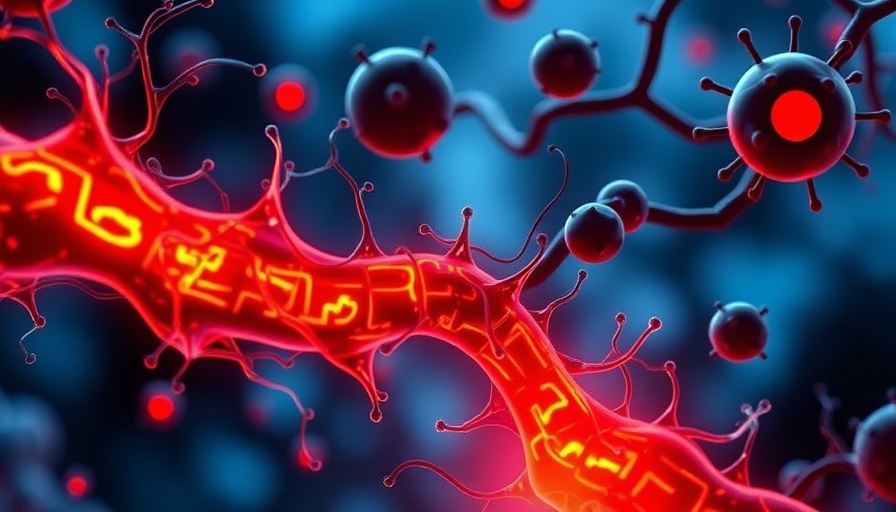
Understanding Reductive Stress in Chronic Diseases
Reductive stress may not be a term that immediately catches your attention, yet it plays a substantial role in chronic diseases, particularly in the context of mitochondrial dysfunction. At its core, reductive stress refers to an imbalance in the body’s redox state, leading to excessive reduced compounds that can impair cellular processes. This dysfunction often jeopardizes metabolic functions, especially in individuals struggling with weight loss.
The Mitochondrial Connection
Mitochondria are crucial for producing energy in our bodies, often referred to as the "powerhouses" of our cells. When these organelles become dysfunctional due to reductive stress, energy production drops, leading to fatigue and a reduced ability to exercise. Importantly, this dysfunction doesn't only affect energy levels but can also impact emotional and physical wellness, making it even harder to adopt daily wellness habits.
Addressing the Imbalance
So, how can you combat this? Simple lifestyle adjustments—like incorporating nutrient-dense foods and engaging in regular physical activity—can help recalibrate your body’s oxidative balance. Furthermore, practices such as mindfulness and self-care play a crucial role in achieving a wellness lifestyle that is both enriching and sustainable.
Creating Your Personal Wellness Plan
Building a personal wellness plan is vital for overcoming challenges linked to reductive stress. Focus on establishing daily wellness habits, such as adequate hydration, balanced nutrition, and sufficient rest. These routines not only support mitochondrial health but also contribute to effective weight loss strategies.
Ultimately, understanding and addressing the link between reductive stress and mitochondrial dysfunction opens the door to better health management. For those on a journey to lose weight, taking steps towards a balanced lifestyle can help foster improvements in overall well-being. Dive into these wellness tips for everyday life, and explore how a mindful, health-focused approach can dramatically alter your path to wellness.
 Add Row
Add Row  Add
Add 



Write A Comment